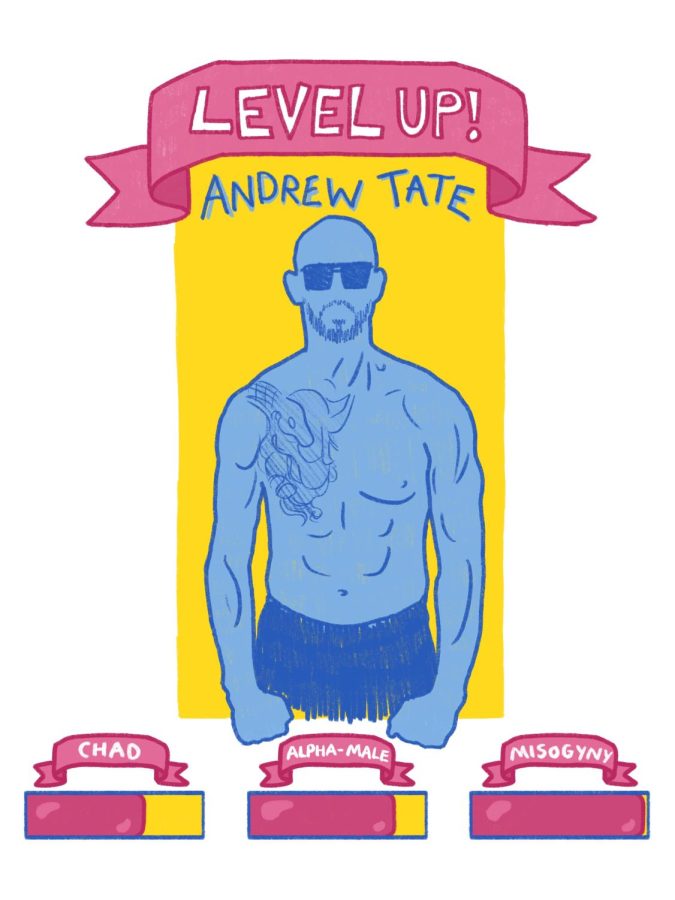The Andrew Tate Phenomenon
October 6, 2022
Amassing millions of followers across multiple platforms, Andrew Tate, a popular internet content creator, has quickly become the face of incel culture for our generation of teenage boys.
Social media platforms, like Tiktok and Instagram, use algorithms to suggest content that the user will engage with, typically showing posts that reinforce beliefs that they already have. Essentially, this creates an echo chamber of media that users are likely to agree with—often leading to radicalization. This phenomenon is called the “alt-right pipeline.” Starting with seemingly “harmless” content (often gaming related), the alt-right pipeline slowly begins to introduce increasingly right-wing political media to their feeds. Creators like Andrew Tate, Ben Shapiro, and Jordan Peterson serve as entry-level indoctrinators of the pipeline, opening the gateway for misogynistic and white supremacist ideology.
There is an unmistakable characteristic of Andrew Tate’s fanbase: it consists mainly of teenage boys. This is because Tate’s content takes advantage of insecurity relating to masculinity, and uses it to feed into patriarchal beliefs of gender roles. His impact has further instilled these harmful beliefs in our generation, which will devastatingly affect both men and women. Tate’s toxic portrayal of masculinity discourages vulnerability and seeking help, making men more likely to suffer in silence. By using outright misogyny to objectify and degrade women, Tate sets a bad example for his followers who will internalize this rhetoric and use it to harm others.
The internet has completely warped the way that our generation’s beliefs are formed; rather than drawing their own conclusions based on news and statistics, polarization encourages people to take sides on an issue (regardless of whether it is warranted) and only listen to one narrative. Internet culture allows, and often encourages, people to share their opinions on issues they are not qualified to speak on. Engagement algorithms are more likely to recommend controversial takes due to high levels of contention, sparking heated arguments and pushing people further toward political extremes. Because of this, it has become impossible to passively engage with media, especially online.
Social media platforms must now take on the role of keeping their platforms safe for all users, especially young audience members who are more likely to fall victim to persuasion. Although Andrew Tate has now been banned from several platforms, there is nothing preventing someone else from taking his place. Tate is not the first of his kind, nor will he be the last. His influence represents a growing trend of similar content creators as a way of radicalizing our generation, making it necessary to prevent influencers from attaining a cult-like following similar to Andrew Tate’s. Platforms need to prioritize online safety, and monitor racist and misogynistic inflammatory content so that it can be removed before receiving attention.
Despite this predatory pipeline, it is ultimately the responsibility of the individual to choose the content they engage with; followers of Andrew Tate consciously watched, liked, and followed his content without questioning his behavior. Regardless of age or political affiliation, everyone is susceptible to tactics like this, and it is essential that we all begin to think more critically about what we see on social media.
This piece also appears in our September 2022 print edition.










